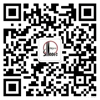|
中国石化新闻网讯 据海上能源4月24日报道,沙特阿美能源公司宣布,一批低碳氨已运抵日本,用作发电燃料。 更具体地说,这批货物被描述为首批经认证的低碳氨抵达日本,被运往富士石油公司的Sodegaura炼油厂,用于发电。 此批货是整个低碳氨价值链多方合作的结果。该氨由沙特基础农业营养公司(SABIC Agri-Nutrients:SABIC AN)用沙特阿美的原料生产,并由沙特阿美贸易公司出售给富士石油公司(FOC)。三井商船公司(MOL)的任务是将液体运送到日本,从那里将低碳氨运送到Sodegaura炼油厂。由日本石油工程公司(JOE)提供技术支持。 值得注意的是,日本经济产业省已经宣布了计划,将越来越多地利用氨作为发电和船舶推进的燃料,作为该国2050年脱碳目标的一部分。 沙特阿美公司表示,到达日本的低碳氨是沙特阿美公司和沙特基础工业公司建立全球燃料供应网络的更广泛努力的一部分,并补充道,两家公司的目标是向其他客户供应低碳氨,以满足他们的早期需求。 沙特阿美公司化学品高级副总裁Olivier Thorel表示,“这是另一个里程碑,突显了由沙特阿美公司原料生产低碳氢和低氨的可能性,具有在低碳未来发挥作用的潜力。低碳氨不仅是运输低碳氢的一种手段,它本身也是一种重要的能源,可以帮助关键部门脱碳,包括公用事业和工业的发电。通过将这种经过认证的低碳氨运往日本,我们正在帮助制定这一重要商品的发展路线”。 FOC代表董事兼总裁Shigeto Yamamoto评论道,“由于日本旨在到2050年实现碳中和,低碳氨有望成为有助于减少二氧化碳排放的下一代燃料。为了减少自身生产过程中二氧化碳的排放,我们一直在Sodegaura炼油厂的锅炉中进行石油炼制过程的副产品氨的共烧,这次我们计划与合作伙伴合作,在同一锅炉中燃烧进口的低碳氨。我们将继续努力,为氨供应链的建设作出贡献”。 SABIC AN首席执行官Abdulrahman Shamsaddin表示,我们的目标是利用这一重要里程碑来发展和扩大我们对碳中和的积极贡献。 2020年,沙特阿美与沙特基础工业公司合作,在一个示范项目中向日本运送了世界首批低碳氨。然后,在2022年,沙特阿美和沙特基础工业公司获得了世界首个低碳氢和低氨产品的独立认证。截至当年年底,这两家公司已经向韩国交付了世界首批经认证的低碳氨。 郝芬 译自 海上能源 原文如下: Japan receives first accredited low-carbon ammonia shipment for power generation Energy company Aramco has announced that a shipment of low-carbon ammonia has arrived in Japan for use as fuel in power generation. More specifically, this shipment, which is described as the first accredited low-carbon ammonia one to arrive in Japan, was transported to the Fuji Oil company’s Sodegaura Refinery for use in co-fired power generation. The shipment is the result of a multiparty collaboration across the low-carbon ammonia value chain. The ammonia was produced by SABIC Agri-Nutrients with feedstock from Aramco, and sold by Aramco Trading Company to the Fuji Oil Company (FOC). Mitsui O.S.K. Lines (MOL) was tasked with shipping the liquid to Japan, from where the low-carbon ammonia was transported to the Sodegaura Refinery. Technical support was provided by Japan Oil Engineering Co (JOE). To note, Japan’s Ministry of Economy, Trade, and Industry has announced plans to increasingly harness ammonia as a fuel for power generation and for ship propulsion as part of the country’s 2050 decarbonisation goals. Aramco said the low-carbon ammonia that reached Japan is part of broader efforts by Aramco and SABIC to establish a global supply network for the fuel, adding that the two companies aim to supply low-carbon ammonia to other players to meet their early demand needs. Olivier Thorel, Aramco Senior Vice President of Chemicals, said: “This is another milestone that highlights the possibilities for low-carbon hydrogen and ammonia made from Aramco feedstock, with the potential to play a role in a lower-carbon future. Not only is low-carbon ammonia a means to transport lower-carbon hydrogen, it is an important energy source in its own right that can help decarbonise key sectors, including power generation for both utilities and industries. By dispatching this accredited low-carbon ammonia to Japan, we are helping chart a course for the development of this vital commodity.” Shigeto Yamamoto, FOC Representative Director and President, commented: “As Japan aims to achieve carbon neutrality by 2050, low-carbon ammonia is expected to be a next-generation fuel that can contribute to the reduction of CO2 emissions. In order to reduce CO2 emissions from our own operations, we have been working on co-firing ammonia, which is a by-product of the petroleum refining process, in the boiler at our Sodegaura Refinery, and we plan to burn low-carbon ammonia imported this time with the cooperation of our partners in the same boiler. We will continue these efforts to contribute to the construction of the ammonia supply chain.” Abdulrahman Shamsaddin, SABIC AN CEO, said: “Our aim is to capitalise on this important milestone to grow and expand our positive contribution toward carbon neutrality.” In 2020, Aramco collaborated with SABIC to dispatch the world’s first shipment of low-carbon ammonia to Japan in a demonstration project. Then, in 2022, Aramco and SABIC received the world’s first independent accreditation for low-carbon hydrogen and ammonia products. By the end of that year, the two companies had delivered the world’s first accredited low-carbon ammonia shipment to South Korea.
|


